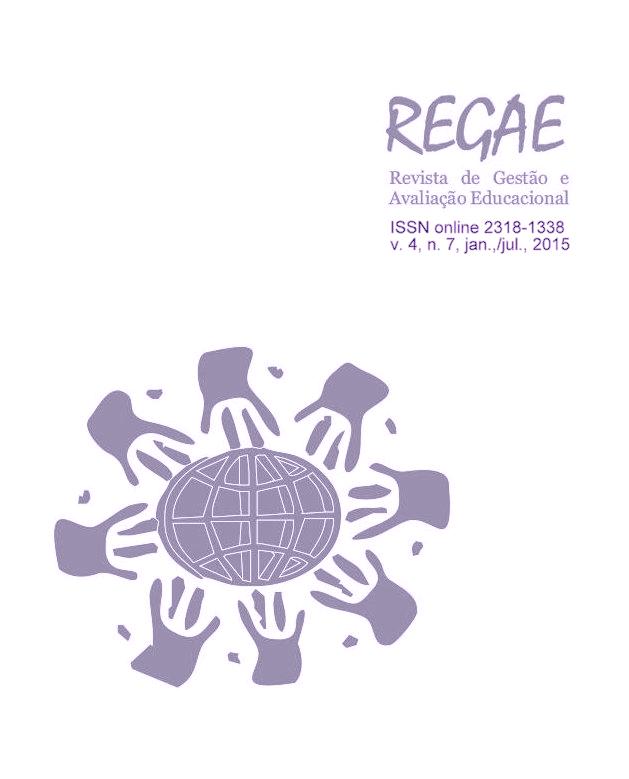Public administration and the need to counter and prevent bullying considering the possibility of professors and educational institutions holding aforesaid responsability
DOI:
https://doi.org/10.5902/2176217115855Abstract
Bullying represents one of the greatest challenges professors and educational administrators have to address. This emerges in consequence of a theoretical and practical shortcoming of those professionals when identifying and handling bullying occurrences. The present work aimed for students in the Programa Especial de Formação de Professores para o Ensino Profissional of the Universidade Federal de Santa Maria. On a methodological approach, this research could be classified and quantitative. The conducted survey consisted of twelve multiple choice questions and one optional free response query in which the participants would narrate a personal bullying experience. The results showed how common bullying is inside the selected educational environment, in what manner it varies in between victim and perpetrator genres, its characteristics, where it takes place, as well as the aftereffects on the victim psyche. In conclusion it seems imperative to deploy a public administration policy which would focus on the pedagogical formation of educational actors who are furthermore obliged to identify and prevent the bullying situation.
Key-words: bullying, children and adolescents, public administration, responsibility.
Downloads
References
ANDRADE, Michela Pereira de. Bullying: concepções dos atores envolvidos. BAURU, 2007. Disponível em <http://www.fc.unesp.br/upload/pedagogia/TCC%20Michela%20-%20Final.pdf >. Acessado em 22 Mai. 2014.
ARAÚJO, Maria Arlete Duarte. Responsabilização da administração pública: limites e possibilidades do gestor público. CICLO DE PALESTRA ORGANIZADO PELA ESCOLA DE GOVERNO DO RN, 1, 2010. Anais ... Natal: Searh, 2010.
BRASIL. Constituição da República Federativa do Brasil. Brasília: Senado Federal, 1988.
BRASIL. Lei n. 10.406. Novo Código Civil Brasileiro. Brasília: Congresso Nacional, 2002.
CABRAL NETO, Antônio. Gerencialismo e gestão educacional: cenários, princípios e estratégias. In: FRANÇA, Magna; BEZERRA, Maura Costa (orgs.). Política educacional: gestão e qualidade do ensino. Brasília: Liber Livro, 2009, p. 169-204.
CHARDIN, Teilhard. O papel cognitivo e social da sensibilidade. In: ASSMANN, Hugo; CHAVES WM. Fenômeno bullying e a educação física escolar. ENCONTRO FLUMINENSE DE EDUCAÇÃO FÍSICA ESCOLAR, 10, 2006. Anais ... Niterói: UFF, 2006.
CLEARY Mark. Bullying information for schools. Disponível em: <http://www.police. govt.nz/service/yes/nobully/bullying_info.pdf>. Acesso em: 15 mar., 2011.
CNJ. Bullying: projeto justiça nas escolas. Cartilha 2010. Disponível em <http://www.cnj.jus.br/images/Justica_nas_escolas/cartilha_web.pdf>. Acessado em 30 jan., 2014.
CORRÊA, Guilherme et al. Pedagogia libertária: experiências hoje. São Paulo: Imaginário, 2000.
CONJUR. Dano à integridade: colégio deve indenizar ex-aluno que sofreu bullying. 2013. Disponível em <http://www.conjur.com.br/2013-mai-19/colegio-condenado-indenizar-ex-aluno-sofreu-bullying>. Acessado em 16 abr., 2014.
DAYRELL, Juarez. A escola como espaço sócio-cultural. In: DAYRELL, Juarez (org.). Múltiplos olhares sobre a educação e cultura. Belo Horizonte: UFMG, 1996, p. 47-70.
FANTE, C. Fenômeno bullying: como prevenir a violência nas escolas e educar para a paz. Campinas: Verus, 2005.
GARCÍA, Eduardo; GARCÍA, Francisco Florentino. Aprender investigando: una propuesta metodológica basada em la investigación. Sevilla: Díada, 1997.
GERONASSO, Jociane Emídia Silva. Políticas e representações sociais de professores da escola básica sobre o bullying. SEMINÁRIO DE PESQUISA EM EDUCAÇÃO DA REGIÃO SUL, 9, 2012. Disponível em: <http://www.portalanpedsul.com.br/admin/ uploads/2012/Formacao_de_Professores/Trabalho/05_47_33_1642-7223-1-PB.pdf>. Acesso em 15 abr., 2014.
GISI, Maria Lourdes; VAZ, Fabiana Andrea Barbosa; VALTER, Cristina Crescêncio Nabosne. Bullying: um desafio para a formação de professores. SEMINÁRIO DE PESQUISA EM EDUCAÇÃO DA REGIÃO SUL, 9, 2012. Disponível em <http://www.portalanpedsul.com.br/admin/uploads/2012/Formacao_de_Professores/Trabalho/06_15_44_2268-7092-1-PB.pdf>. Acesso em 15 abr., 2014.
LINHARES DA SILVA, Mozart. A urgência do tempo: novas tecnologias e educação contemporânea. In: LINHARES DA SILVA, Mozart (org.). Novas tecnologias: educação e sociedade na era da informática. Belo Horizonte: Autêntica, 2001, p. 39-56.
LOBO, Luiz. Escola de pais. Rio de Janeiro: Lacerda, 1997.
LOURO, Guacira Lopes. Currículo, gênero e sexualidade. In: LOURO, Guacira Lopes et al (orgs.). Corpo, gênero e sexualidade. Rio de Janeiro: Vozes, 2003, p. 59-76.
MARCHESI, Álvaro. O que será de nós, os maus alunos? Porto Alegre: Artmed, 2006.
NETO, Aramis Lopes. Diga não ao bullying. Rio de Janeiro: Abrapia, 2004.
OLÍAS DE LIMA, Blanca. La nueva gestión pública. Madrid: Pearson Educación, 2001.
OLIVEIRA, Flávia Fernandes de; VOTRE, Sebastião Josué. Bulliyng nas aulas de educação física. Revista Movimento, Porto Alegre, v. 12, n. 2, 2006, p. 173-197.
PÉREZ GÓMEZ, Angel. A cultura escolar na sociedade neoliberal. Porto Alegre: Artes Médicas, 2001.
PIOVESAN, Flávia. Direitos humanos e o direito constitucional internacional. São Paulo: Max Limonad, 2014.
SILVA, Ana Beatriz Barbosa. Bullying: mentes perigosas nas escolas. Rio de Janeiro, Objetiva, 2010.
TARDIF, Maurice. Saberes docentes e formação profissional. Petrópolis: Vozes, 2002.
TORRES, Rosa R. Melhorar a qualidade da educação básica? As estratégias do Banco Mundial. In: TOMASSI, Livia de; WARDE, Mirian Jorge; HADDAD, Sérgio (orgs.). O Banco Mundial e as políticas educacionais. São Paulo: Cortez, 2003, p. 15-40.
UNICEF. Convenção sobre os direitos da criança. Portugal, 1990. Disponível em <https://www.unicef.pt/docs/pdf_publicacoes/convencao_direitos_crianca2004.pdf>. Acessado em 21 fev., 2014.
VIEIRA, Sofia Lerche. Gestão para uma comunidade de aprendizes: gestão escolar e qualidade da educação. Fortaleza: Seduc, 2005.
Downloads
Published
How to Cite
Issue
Section
License
Authors keep copyright and concede to the magazine the right of first publication, with the work simultaneously licensed under the Creative Commons Attribution 4.0 International, non-commercial license with no derivative work, which allows to share the work with no author recognition and initial publication in this magazine.
Authors has authorization to overtake additional contracts separately, to distribute a non-exclusive version of the work published in this magazine: For example: to publish in an institutional repository or as a chapter of a book, with authorial recognition and initial publication in this magazine.
Authors are allowed and are encouraged to publish and distribute their work online. For example: in institutional repositories or in their own personal page – at any point before or during the editorial process, because this can result in productive changes, as well as increase the impact and the mention to the published work.






